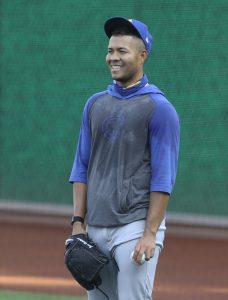The Angels placed starting pitcher Patrick Sandoval on the 10-day injured list due to a lumbar spine stress reaction. José Quintana will start tomorrow afternoon’s game against the Tigers in his place. A specific timetable for Sandoval’s return isn’t yet clear, but manager Joe Maddon suggested to reporters (including J.P. Hoornstra of the Southern California News Group) there was some chance it’d be a season-ending injury.
The rotation has been a disappointment for the Angels, who sit at an even 61-61 and look likely to miss the postseason for the seventh consecutive year. Sandoval, though, has been a somewhat surprising bright spot. The 24-year-old began the season with Triple-A Salt Lake but was recalled in early May and has been a rotation fixture over the past few months.
Sandoval has worked to a 3.62 ERA across 87 innings. He’s struck out an above-average 25.9% of batters faced and induced groundballs at a very strong 51.1% clip. Sandoval has walked a slightly elevated 9.9% of opponents, but there’s little question he’s shown plenty of promise.
Indeed, there’s real reason to believe Sandoval could potentially reach another level upon his return to health. He’s generated whiffs on a massive 15.2% of his pitches. That’s the eighth-highest rate among the 125 pitchers with 80+ innings pitched. The seven names above him on that list (Jacob deGrom, Tyler Glasnow, Shane Bieber, Clayton Kershaw, Corbin Burnes, Max Scherzer and Carlos Rodón) are among the top handful of pitchers in the game and/or having Cy Young-caliber seasons. That’s extremely impressive company for a relatively unheralded player like Sandoval to keep, making his current injury all the more unfortunate.
At the very least, Sandoval seemingly showed enough this season to lock himself into Los Angeles’ season-opening rotation for 2022. With the Angels looking unlikely to be playing for much in September, they figure to be especially cautious with one of their most promising young arms. The Angels figure to rely on Quintana in Sandoval’s absence, at least until Alex Cobb returns from his own IL stint.
